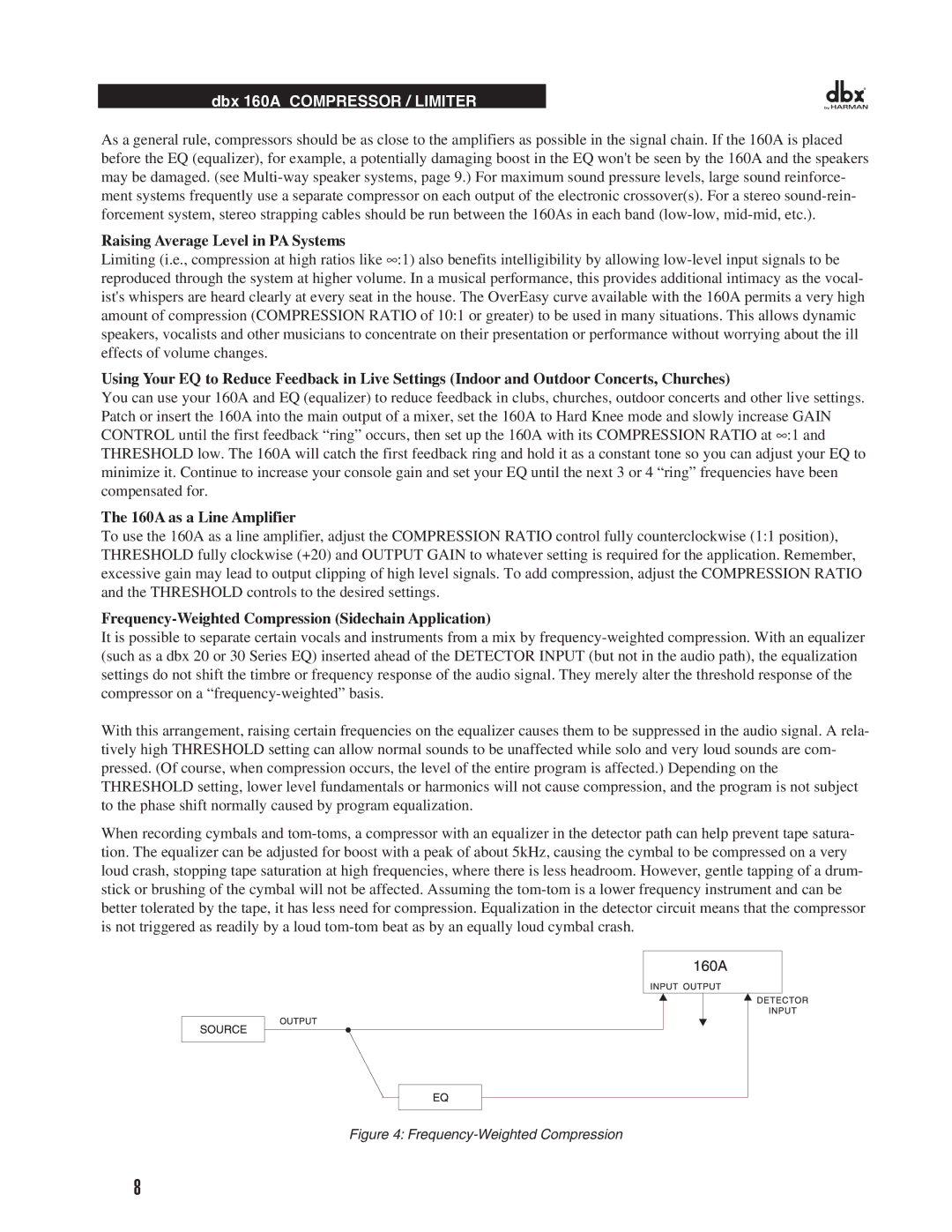
dbx 160A COMPRESSOR / LIMITER
As a general rule, compressors should be as close to the amplifiers as possible in the signal chain. If the 160A is placed before the EQ (equalizer), for example, a potentially damaging boost in the EQ won't be seen by the 160A and the speakers may be damaged. (see
Raising Average Level in PA Systems
Limiting (i.e., compression at high ratios like ∞:1) also benefits intelligibility by allowing
Using Your EQ to Reduce Feedback in Live Settings (Indoor and Outdoor Concerts, Churches)
You can use your 160A and EQ (equalizer) to reduce feedback in clubs, churches, outdoor concerts and other live settings. Patch or insert the 160A into the main output of a mixer, set the 160A to Hard Knee mode and slowly increase GAIN CONTROL until the first feedback “ring” occurs, then set up the 160A with its COMPRESSION RATIO at ∞:1 and THRESHOLD low. The 160A will catch the first feedback ring and hold it as a constant tone so you can adjust your EQ to minimize it. Continue to increase your console gain and set your EQ until the next 3 or 4 “ring” frequencies have been compensated for..
The 160A as a Line Amplifier
To use the 160A as a line amplifier, adjust the COMPRESSION RATIO control fully counterclockwise (1:1 position), THRESHOLD fully clockwise (+20) and OUTPUT GAIN to whatever setting is required for the application. Remember, excessive gain may lead to output clipping of high level signals. To add compression, adjust the COMPRESSION RATIO and the THRESHOLD controls to the desired settings.
Frequency-Weighted Compression (Sidechain Application)
It is possible to separate certain vocals and instruments from a mix by
With this arrangement, raising certain frequencies on the equalizer causes them to be suppressed in the audio signal. A rela- tively high THRESHOLD setting can allow normal sounds to be unaffected while solo and very loud sounds are com- pressed. (Of course, when compression occurs, the level of the entire program is affected.) Depending on the THRESHOLD setting, lower level fundamentals or harmonics will not cause compression, and the program is not subject to the phase shift normally caused by program equalization.
When recording cymbals and
Figure 4: Frequency-Weighted Compression
8
